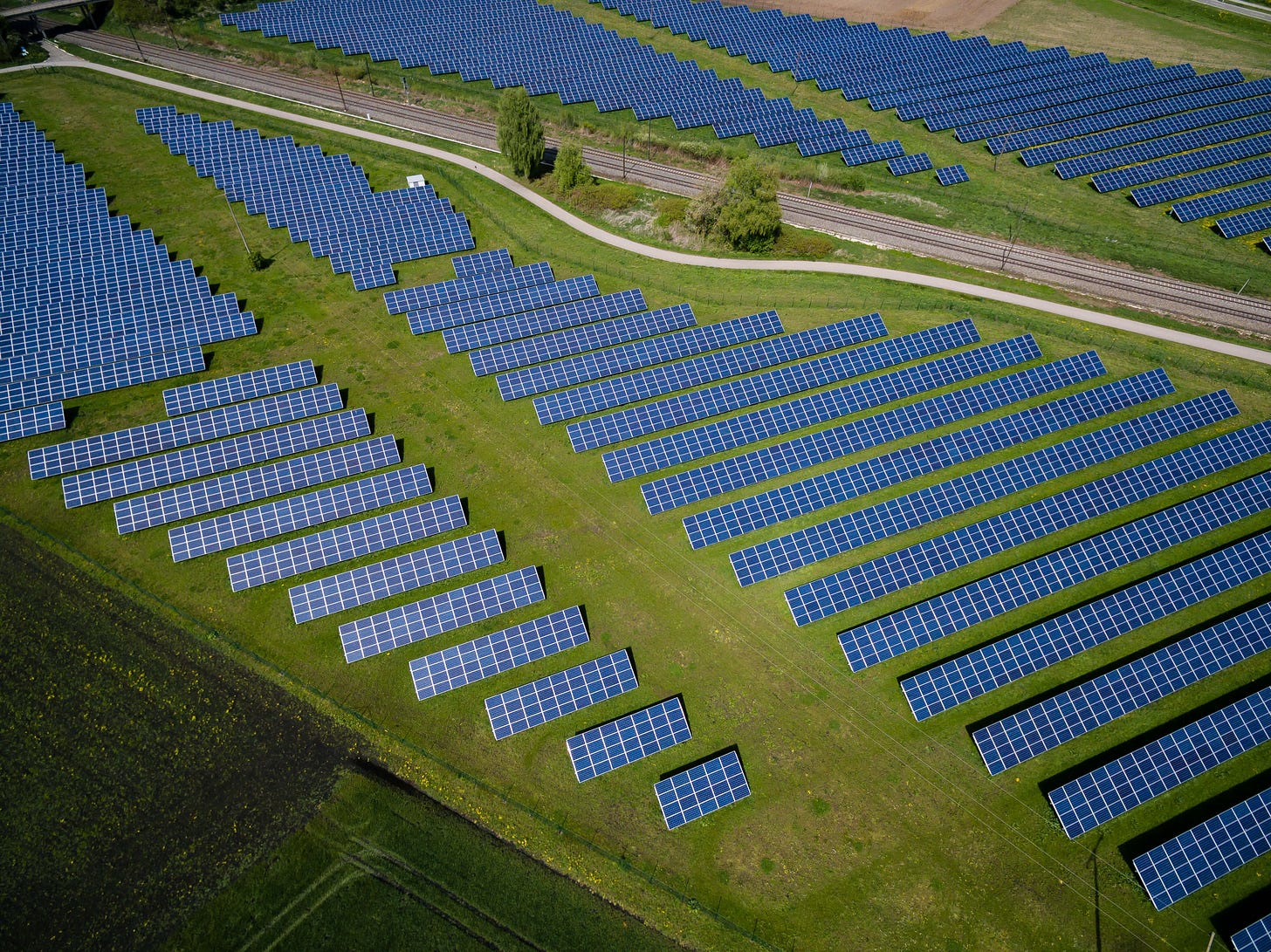Welcome back to Clickable Insights. In this issue, our last of 2023, the Clickable Impact team looks at measures to address agriculture’s contributions to climate change. Then, we explore the critical need for more climate adaptation financing in LMICs.
Side note: Clickable Impact recently launched a redesigned website. Check it out and let us know what you think. In parallel, we were pleased to design, develop, and launch a new website for ADB Ventures last month. While you’re there, revisit the Climatic content series that we produced for ADB Ventures in 2021 and 2022.
Trimming agriculture’s climate impact
Human food systems, from production through consumption and on to waste, account for roughly a third of global GHG emissions. Several Southeast Asian countries are taking measures to reduce their impact.
Vietnam aims to grow one million hectares of high-quality, low-emission rice in the Mekong Delta under the Vietnam Sustainable Agriculture Transformation Project, which launched in 2015. Rice production accounts for half of Vietnam’s agricultural methane emissions and 15% of total GHG emissions.
The World Bank and the International Rice Research Institute are supporting the US$301 million project, which trains farmers on two new rice cultivation techniques aimed at reducing the use of water, fertilizer, and pesticides.
However, convincing farmers to move away from longstanding methods won’t be easy. Mekong Eye reported on this project and found that farmers were struggling with high input costs and a lack of commensurate returns, highlighting the need for significant long-term financial support in the transition to low-emission agriculture.
Ahead of the recently concluded COP28 climate summit, some stakeholders pushed national governments to do more in mitigating agriculture-related emissions, arguing that this area doesn’t get as much attention as fossil fuels and transportation (which, to be clear, deserve tons of focus).
Organizations including WWF and the Food and Land Use Coalition urged delegates “to acknowledge the critical role of food systems in achieving the goals of the Paris Agreement on climate change.” According to Vox, methane emissions were addressed, but with limited emphasis on agriculture, instead focusing on the oil and gas industry.
However, there may be a reason for this lack of policy focus.
Karen Smyth, program director for the Centre for Supporting Evidence-Based Interventions in Livestock, noted in a Devex opinion piece: “Right now, large gaps in essential data are leaving decision-makers shooting in the dark at where best to focus agricultural emission-reduction efforts.”
These gaps are particularly pronounced in the global south, where agrifood systems are key to achieving other development goals including supporting economic development, local food security, and livelihoods.
This represents a huge opportunity for development organizations and climate tech providers to help farmers gain access to better data and, ideally, more sustainable agricultural practices.
Taking stock of corporate climate mitigation action...
A key (and contentious) aspect of COP28 was the response to the first-ever global carbon stocktake, which was released in October and found that the world is not on track to achieve the Paris Climate Agreement goals.
That same month the We Mean Business Coalition released a corporate climate stocktake supported by Bain & Company, Race to Resilience, and Race to Zero.
The report found that key constraints to corporate climate action include consumer concerns in adopting EVs, high costs for zero-carbon technology in the steel sector, and the lack of skilled labor in the power industry.
Government support, meanwhile, plays an instrumental role in enabling companies to transition. In total, 73% of respondents surveyed for the report ranked regulation as the most important driver of accelerating action for the energy transition.
...amid a huge need for adaptation
A new World Economic Forum white paper, meanwhile, explored the private sector’s role in climate change adaptation.
The authors found that governments see a major role for the private sector in climate adaptation, primarily as a provider of finance, but most businesses do not currently view adaptation as a priority. GHG mitigation gets the lion’s share of the private sector’s attention, even if targets related to that are off track.
Surveyed businesses, meanwhile, identified barriers to corporate action on adaptation, including the belief that climate risks can be managed, the view that adaptation is costly and the investment case is difficult to make, and that the policy landscape offers no incentives for action.
There is a clear disconnect here when it comes to adaptation, with governments and businesses largely not on the same page, contrasting with the well-developed system of policies and incentives aimed at climate mitigation.
This comes as the need for adaptation financing grows ever larger. The UN Environment Programme estimates that developing countries alone need US$194-366 billion annually for adaptation, over 10 times more than is currently available and far more than previously estimated.
Despite this stark need, international financial flows to developing countries for adaptation fell 15% from 2021 to 2022, while financing for mitigation has increased every year since 2018.
There is nothing inherently wrong with mitigation efforts, but we ignore adaptation at our own peril.
Thanks to Clickable Impact consultants Graham, Khanh, Diep, Linh, Emmanuel, Thu, Jason, Ha, and Mike for their contributions to this month’s newsletter.
To our readers – thank you so much for joining Clickable Insights on our journey this year – have a wonderful holiday season and see you in 2024.
Back next month with more developments in climate action, transformative innovation, and sustainable tourism.
Clickable Insights is brought to you by Clickable Impact
Clickable Impact is an Asia-based consultancy committed to climate action and sustainable development. We have three practice areas: public affairs and communications, sustainable tourism, and transformative innovation. Across our work, Clickable Impact favors projects that urgently mobilize private sector engagement, policy action, and investment.
All views expressed in this newsletter are our own.
Copyright © 2023 Clickable Impact, All rights reserved. You are receiving this email because you opted in via our website.
Our mailing address is:
House 20A, 11/5 To Ngoc Van, Quang An, Tay Ho
Hanoi, Hanoi 11207
Vietnam






